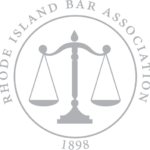Your Duties to Disclose During Bankruptcy
A successful Chapter 7 bankruptcy requires honesty in order to work. When filing for bankruptcy in Rhode Island (or any state for that matter), honesty is not just necessary: it is mandatory. Anyone filing for bankruptcy should know that they are expected—required, rather—to act in good faith and be completely transparent with their RI bankruptcy attorney and Chapter 7 bankruptcy trustee.
There are three areas in particular where this “duty to disclose” comes into play for those filing for bankruptcy.
(1) Duty to Disclose Pre-Bankruptcy Asset Transfers
Imagine you own a number of expensive assets (real estate, valuable jewelry, multiple cars, perhaps a boat) but have created considerable debt in acquiring them. Scared that you may lose something, you secretly transfer these items to a close relative before filing for bankruptcy, with the intent of taking them back after your debt has been eliminated. This would be considered fraud under bankruptcy law and could be grounds for the denial of your debt discharge. For this reason, you are required to alert your attorney of any and all transfers of interest in the period before you filed for bankruptcy.
(2) Duty to Disclose Payments Made Before Your Bankruptcy
You may or may not have been advised to avoid repaying loans to family and friends prior to filing for bankruptcy. This is partially because of your “duty to disclose” pre-bankruptcy payments, since repaying loans from family and friends in this context can also be considered as fraudulent. In repaying old debts, you have chosen a lesser priority “creditor” over another higher-priority creditor, an action that can have serious repercussions in bankruptcy court. For this reason, any pre-bankruptcy payments beyond what bankruptcy court considers “essential” must be disclosed to one’s bankruptcy attorney.
(3) Duty to Disclose Any Lawsuits
Your “duty to disclose” extends to payments you expect to receive as well. If you are currently involved in a lawsuit from which you expect to receive some form of financial settlement or compensation, you have an obligation to alert your bankruptcy attorney of your situation.
Bankruptcy is a complicated business, so consulting a qualified bankruptcy attorney is an intelligent move for any person struggling with excessive debt. A good bankruptcy attorney can help you make sense of bankruptcy law’s complex procedures and make the most of a difficult financial situation. The Law Offices of Mark Buckley offer free debt consultation and are a good place to start when looking for financial direction.





